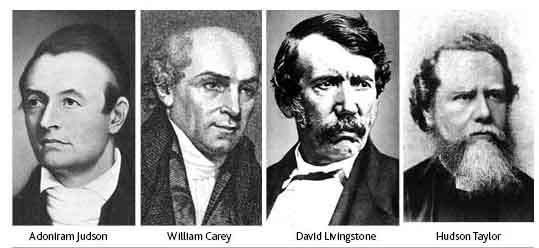

Lessons for Ministers on Paul’s Experience at Athens
Dr. Kris A. Jackson
Paul and Silas’ itinerant schedule was determined as much by their persecutions as by their charted plans. The first clause of Acts 17 has Paul preaching in Thessalonica then speedily departing with Silas because some of the Jews in the city created an uproar, saying, “These that have turned the world upside down have come here also” (vs 6). Actually, the two evangelists were turning the world right side up, not upside down, because a world gone in sin is a world gone insane. They moved their ministry to Berea and had good success then to Thessalonica, where the religionists stirred up more trouble (vs 13). This forced them to move their operation again. As a ship was being prepared, Paul was escorted to Athens, it was not a planned stop, but Paul would walk through whatever door the Lord would open, this time in the center of Grecian art and intellectualism.
What occurred there merits study because the evangelistic truths learned from Athens, Greece will also apply to Athens, Georgia, or any other city for that matter. Let’s take a look at the city, the venue, the audience, the message, the reception and the lessons we can extract from the historical text. You may not have noticed but Paul’s descent from Mars Hill wasn’t quite like his ascent. I will not say that the Apostle failed in this gospel effort, but his descent was anything but joyous.
The City
Paul entered Athens in hope of reaching a greater mass of people because of the size of the Grecian population center. He was in a heathen metroplex that desperately needed Christ. “Now while Paul waited for them at Athens, his spirit was stirred in him, when he saw the city wholly given to idolatry” (vs 16). His heart was burdened over the mythologies, superstitions and perversions of the city. Like Jeremiah, his eye affected his heart (Lamentations 3:51). He started sharing the gospel message with the Jews in the synagogues, then common people in the marketplace, then in the debate halls of the philosophers (vs 17,18). He became all things to all men, that by all means he might win some to the Lord. At last, he was ushered to the Areopagus, the Hill of Ares, or “Mars Hill”, an outcropping of the Acropolis, 377 feet above the Agora marketplace, looked upon as the courtroom of the Gods.
The Venue
Grecian mythology says Ares was tried by the gods on Mars Hill for the murder of Poseidon’s son. I believe the location had once been dominated by actual Nephilim demigods thousands of years earlier. The evangelist must not fear to infiltrate Satan’s seats of power. Though many of the world’s great philosophers debated there during Paul’s day, the location was certainly a demonic stronghold. Paul went strategically for the jugular vein of Greek intellectualism and mysticism. Later he would face seats of religious and political power in Jerusalem and Rome, but the target for the time being was Athens, the center of mystical and occultic principalities and powers.
The Message
“Paul stood in the midst of Mars Hill and said…” (vs 22) A preacher that won’t stand for something will fall for anything. The gospel must be heralded. Paul began to speak articulately, positively, intelligently, and with intention. He had a methodology to counter their mythology, countering the logicians with logic, speaking of an altar to the Unknown God (vs 23). He said they “ignorantly” worshiped this God and went about to explain the true God who believers meet by faith in Jesus Christ rather than the futility of religious sacrifices, temples and the works of men’s hands.
Then he appealed to their humanity as all being “of one blood”, then their senses, that the Grecians might “feel after him”, and even to their own poets’ words that we are “the offspring of God” (vs 24-28). Paul was a Jew, but he was versed in Hellenistic culture. He concluded his reasoning with a plea for repentance, what we would term an altar call – “And the times of this ignorance God winked at, but now commands men everywhere to repent” (vs 30). Then he dialed up the heat, referring to the coming judgment for those who reject “that man” whom God had appointed.
By sheer hermeneutics this was Paul’s best sermon. It would have received the most YouTube clicks. But viewership is not the measure of success. I am not being critical here, but I do not see Jesus mentioned in his sermon. It appears that Paul was attempting to prove spiritual matters to these spiritists, rather than just offering the simple gospel “which to the Greeks is foolishness”. It was an apologetically masterful message, spoken on the level of the audience hoping to persuade them in the direction of Jesus Christ. But the Mars Hill experiment was in many respects a failure.
We were never commanded nor intended to match wits with the world. The Stoics, Epicureans and seekers of some new thing, in our day, are only seeking amusement and entertainment. They may be philosophical, but they are not spiritual. I believe he should have told them about the change in his life after seeing Jesus in all His glory. Instead, he tempered the message to their liking, sounded smart, refused to look foolish in their presence, and left out both Jesus and the cross.
The Reception
I believe this is the proper way to interpret this passage because Paul himself didn’t think he did all that well either. The world may give a standing ovation but if the preacher knows he didn’t strike a spiritual nerve, then the praise doesn’t much matter. When the message concluded “some mocked, and others said, We will hear you again of this matter” (vs 32). Next verse, “Paul departed from among them”. There was no reason to remain, no protracted meeting followed. However, or “howbeit” a few sided with Paul and believed, among whom were “Dionysius the Areopagite, and a woman named Damaris, and others with them” (vs 34). That Dionysius was an “Areopagite” suggests a man of great distinction, so Paul’s fishing effort had snagged a big catch. But beyond those “few” we see no great shaking in Athens as had occurred in other cities where Paul preached.
The Lesson
All we can do is present Jesus Christ and His gospel – the results must be left with God. Aiming for a big move of God in a big metroplex is a sensible project but reality doesn’t always match our expectation. Paul’s descent from Mars Hill was different than his ascent. We know from Luke’s historical account that Paul went from Athens to Corinth, with his account recorded in a later letter – “And I, brethren, when I came to you, came not with excellency of speech or of wisdom, declaring unto you the testimony of God. For I determined not to know anything among you, save Jesus Christ, and him crucified. And I was with you in weakness, and in fear, and in much trembling” (1 Corinthians 2:1-3). Paul vowed a different approach in Corinth. He appeared fearful of falling flat on his face in the next Grecian city he visited, so he determined to preach Christ alone, simply, forcefully, authoritatively, rather than communicating logic and sophistication. If the Greeks viewed the cross as foolishness, then he would be Christ’s fool for the gospel’s sake, but never again would he try to match wits with the wise of this world, rather he would bring a gospel backed with the power of the Spirit of God, that men’s faith would “not stand in the wisdom of men, but in the power of God” (vs 4,5).
My conclusion to the Mars Hill matter is that the Gospel preacher must be strategic in reaching the right people with the right message, whether it be in Zeus’ or Aphrodite’s front yard, or shipwrecked on an island like Malta, or traversing the hillsides of Galatia and Colossae. Yes, we must be intellectually astute. We must know our audience and must acclimate ourselves to the surroundings. And we do need to be quick to find relevant preaching material and subjects as Paul saw the altar to an Unknown God. His message was indeed relevant. It was indeed sharp. It was indeed understandable. And it did mention the doctrine of the resurrection. But again, it lacked the wind of the Holy Ghost. If you’re in question, that came straight out of Paul’s mouth. Thank God for the few that were saved. His “few” were far more than most of our present results. But the revival shaking that would have brought Athens to her knees didn’t happen under Paul’s missionary campaign.
But it can happen through yours! Like soldiers crawling up the mountainside of the enemy’s last bastion of strength, today’s church needs to make its final ascent up Mars Hill to seize it as the property of Calvary Hill! Not with “enticing words of man’s wisdom, but in demonstration of the Spirit and power”. The Gospel can pierce the minds of the most sophisticated and erudite. Paul was not ashamed of the gospel of Christ “for it is the power of God, unto salvation every one who believes, to the Jew first, and also TO THE GREEKS” (Romans 1:16).




































